Small Industrial Robots
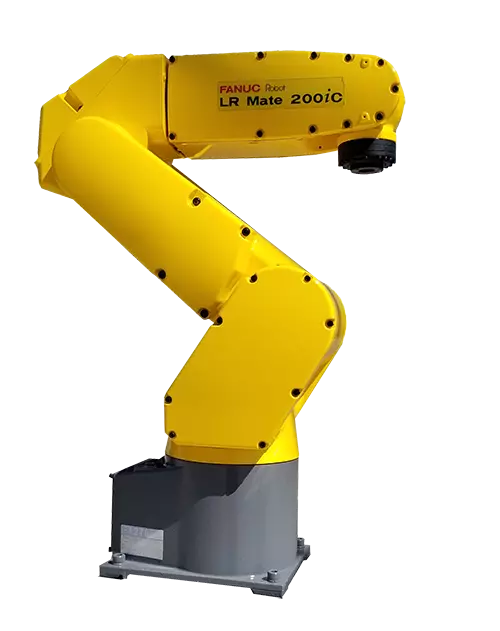
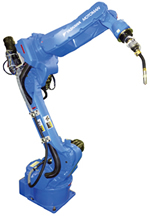
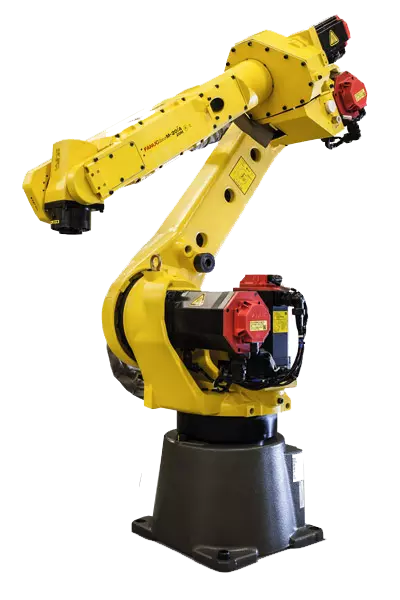
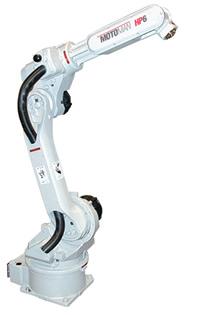
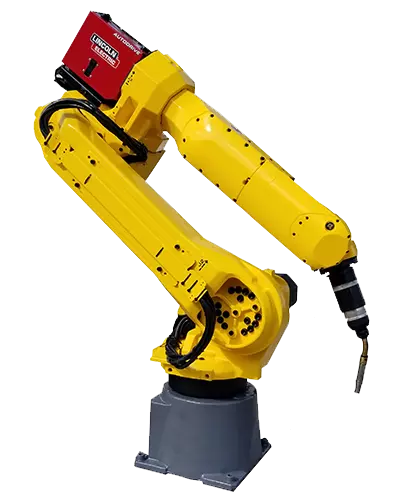
The term industrial robot is often synonymous with the idea of large bulky machines. The fact is there is a wide variety of robot types with each varying in design, size, and shape. Recently there has been an increased demand for small industrial robots as more manufacturers realize robotic automation is becoming necessary to stay competitive and relevant.
In general, a robot is considered to be a small industrial robot if it has a payload capacity that is less than 20 kg and a reach that is under 1,500 mm. Small industrial robots consist of delta, SCARA, collaborative, and even articulated robot types. The FANUC Lr Mate 200ic is an example of a small six-axis articulated robot. All delta and SCARA robots are small industrial robots, while most collaborative robots fit into the small category as well. There are even some robotic manufacturers that focus exclusively on producing small robots. Denso and Epson are two robot brands that specifically manufacture small industrial robots.
Small industrial robots can be used to automate applications requiring a light payload and a compact work envelope. They are often used to automate assembly, pick and place, machine tending, dispensing, packaging, material handling, and even light palletizing applications. The FANUC M10ia is a small robot ideal for automating assembly processes. The FANUC M-20ia/10L can handle lightweight machine tending.
Small industrial robots have been implemented in several different industries. Those in the pharmaceutical and food industries use cleanroom small robots to automate their production processes. The compact size makes them ideal for operating in a lab or with delicate materials. Small robots are even used in the auto industry. Cobots have been trending with automotive manufacturers, assisting them with welding, painting, and inspection among other aspects of automobile assembly processes.
Small industrial robots are often used when space is limited or when workpieces themselves are small. Previously manufacturers were limited if their facilities did not have a large work area for robots or if parts were too intricate. Small industrial robots welcome compact work areas and ease manufacturing with little parts. Welding automation is also a very popular field that utilizes large amounts of small robots. FANUC Arcmate 120ic and Motoman MA1400 are 2 very popular models used in robotic welding.
The size of small robots is one of their biggest advantages and the main reason why users choose to automate with them. Most small industrial robot users purchase them because they do not have the space for a large robot. Small robots can easily be integrated into any production floor layout.
Another advantage of small robots is their incredible speed. Small robots can operate at faster speeds than larger robots since their configuration is less bulky, making them more agile. Delta robots are some of the fastest. The FANUC M-1ia is perfect for high-speed assemblies without sacrificing precision.
Since small robots feature a compact design and lighter robot mass, they have greater installation flexibility. Small robots can often be ceiling, wall, tabletop, or floor mounted. Different mounting capabilities allow for additional space savings and make them easier to install along production lines.
Lastly, small industrial robots tend to be less expensive than their larger counterparts. Manufacturers can not only save on space, but also on robot cost.